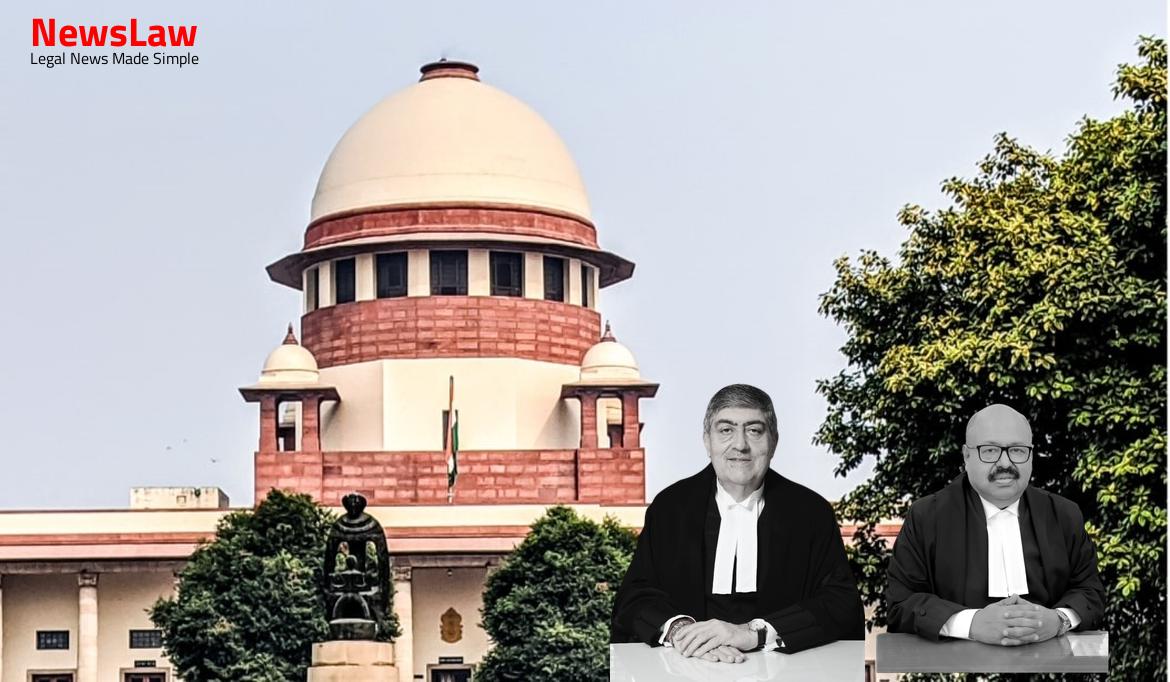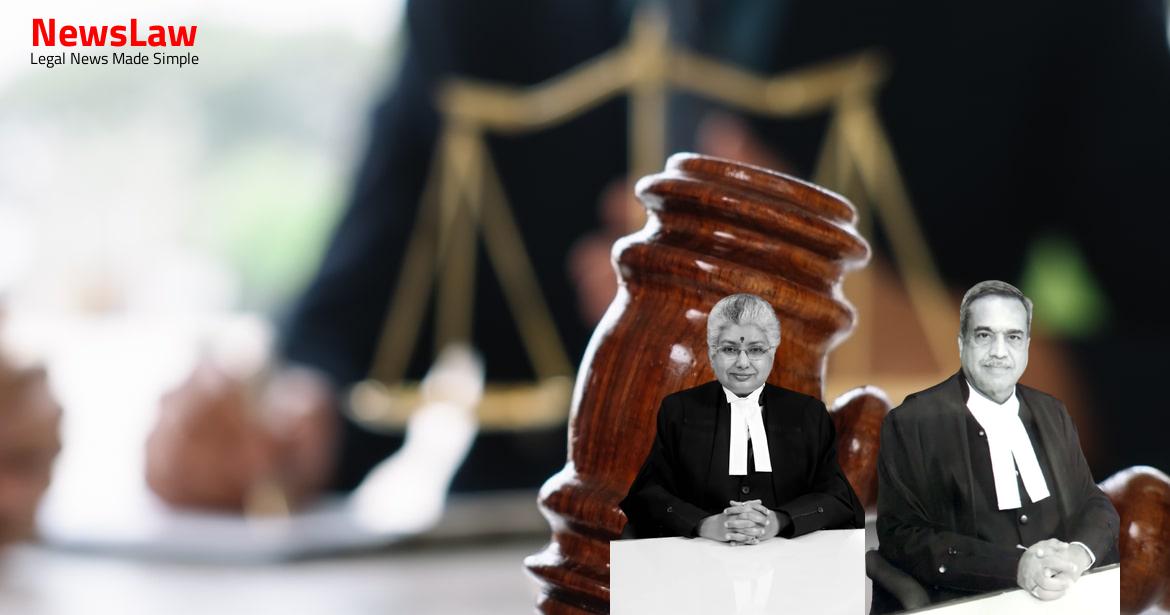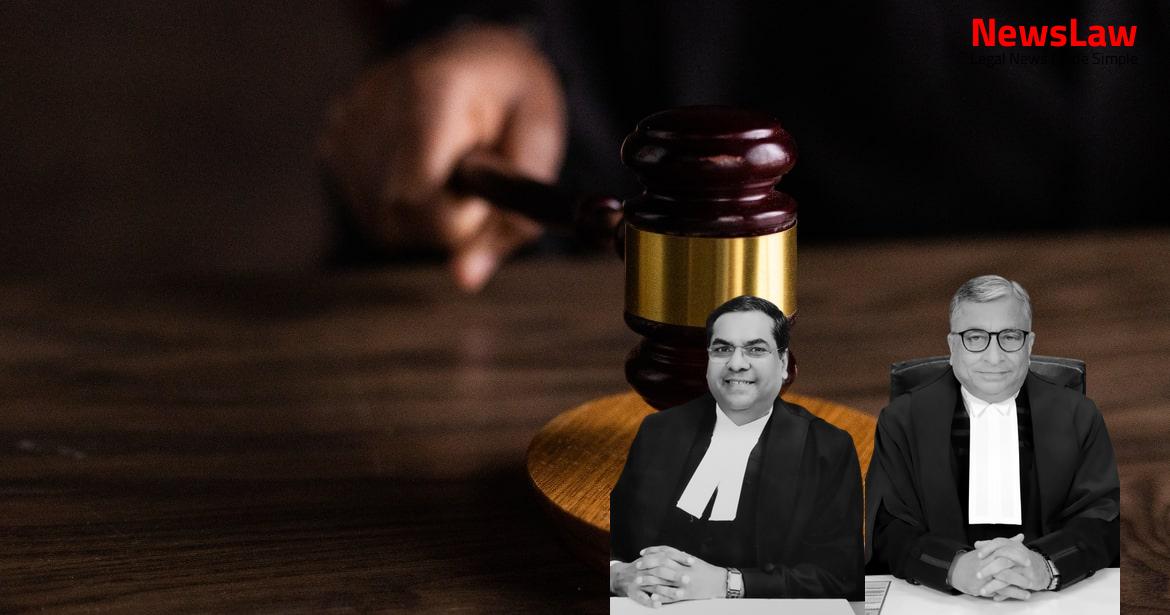Explore a legal case where the court champions individual autonomy in marriage, highlighting the fundamental right to choose one’s life partner. The legal analysis underscores the importance of personal dignity and the court’s intervention in upholding it.
Facts
- Petitioner No.1 and Petitioner No.2 are well-educated individuals.
- Petitioner No.2 is an M.Tech from NIT, Tiruchirapalli and Petitioner No.1 is an M.A.B.Ed.
- The investigating officer did not threaten the petitioners according to the counter affidavit.
- The marriage certificate was received by the IO and Petitioner No.1 confirmed being married to Petitioner No.2.
- Petitioner No.1 and Petitioner No.2 have jobs as a lecturer and assistant professor respectively.
- Petitioner No.1 traveled from Hubli to Delhi without informing her parents to marry Petitioner No.2.
- The IO insisted that Petitioner No.1 should appear at the police station to record a statement.
- The petitioners felt threatened by the IO’s actions and expressed a lack of safety.
Also Read: Supreme Court Judgment on Single Till Mechanism for HRAB Calculation: A Comprehensive Analysis
Arguments
- Petitioner No.1 faced resistance from parents, while petitioner No.2’s parents were supportive of their marriage.
- Increasing trend of educated youth choosing their own life partners, irrespective of caste and community norms.
- Inter-marriage among different castes and communities seen as a positive step towards reducing tensions.
- Youngsters facing threats from elders for their inter-caste marriages.
- Courts stepping in to support the choices of individuals in such cases.
- Emphasis on the importance of individual choice in upholding dignity.
Analysis
- Judicial pronouncements emphasize that the consent of the family or community is not necessary when two adults agree to marry.
- The petitioners’ case led to the quashing of proceedings based on an FIR, with a hope that petitioner No.1’s parents accept the marriage and re-establish social interaction.
- Inter-marriage is seen as the remedy for breaking caste barriers.
- Police authorities are expected to provide guidelines and training programs to handle socially sensitive cases like this one.
- It is crucial for police to counsel current investigating officers and develop training programs to effectively handle such cases.
- Alienating individuals based on caste and community is deemed undesirable by the Court, as society is undergoing a transformative period.
- Intimacies of marriage are considered within a core zone of privacy, inviolable even by matters of faith or concepts like ‘class honour’ or ‘group thinking’.
- The right to marry a person of choice is held to be integral to Article 21 of the Constitution of India.
- The autonomy of an individual in relation to family and marriage is crucial for their dignity, as indicated in the judgment of Justice K.S. Puttaswamy v. Union of India.
- The intervention of the Court in the case was necessitated due to the irresponsible conduct of the Investigating Officer.
- Marriage is seen as a binding force that becomes crucial when society faces fragmentation or division.
- Dr. B.R. Ambedkar’s view on the annihilation of caste through inter-marriage is referenced, highlighting the importance of kinship and unity in society.
- In well-connected societies, marriage is viewed as a regular aspect of life.
Also Read: Selection and Appointment of Judicial Officers in Himachal Pradesh
Case Title: LAXMIBAI CHANDARAGI B Vs. THE STATE OF KARNATAKA (2021 INSC 67)
Case Number: W.P.(Crl.) No.-000359 / 2020



